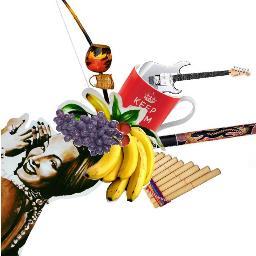Digital Economy USRG
Reflecting on the Web Science MOOC
December 11, 2013
by Josephine Corsi
There has been a lot of excitement recently about the University’s first MOOC (massive open online course) in Web Science, run in partnership with Future Learn. I signed up to the MOOC several months ago, when it was first announced, and I was working in the Student Recruitment and Outreach Team. The use of MOOCs to promote Higher Education, and Higher Education Institutions to prospective students is an interesting idea, and I was determined to have first-hand experience of this type of course when promoting it to students. Since then, I have moved roles within the University and now find myself looking after a number of University Strategic Research Groups, including the Digital Economy group (which has close links to the Web Science MOOC).
I have found the MOOC to be interesting and informative, but have probably not been the most dedicated student on the course. I’m not sure that matters, however, as I have still taken quite a bit of new information away from the experience. There is a small group of us within the team who are currently enrolled on the MOOC, and we have enjoyed quite a few discussions about the various topics over the past few weeks. I have even seen how some of the topics have informed people’s working – after week 2 quite a few network diagrams appeared around the office.
The latest instalment of the Web Science MOOC focuses on the Digital Economy and so is closely related to my daily duties. Even so, I have found the material to be interesting, engaging, informative, and above all thought-provoking. Lisa Harris describes the use of social media to build a professional profile. This is something I’ve never really done before, as I’ve moved around the University using contacts that I’ve made over the years, with changes in role that suit my changing skillset. I hadn’t really considered the idea that a complete absence of information would be a bad thing, and have spent quite a lot of time locking down information that appears on my own social profiles (and cringing at the types of updates my parents put on Facebook). A quick play with some of the tools provided on the course (mainly http://socialmention.com) proves that there is very little information about me (from social media) in the public domain. Information does get returned though, and interestingly it’s information about other people. I’m fortunate to have an unusual name, so we don’t share names but I still found some of the returned information to be quite alarming. So there is a lesson for me: I can’t stop information being associated with my name, but I can influence what kind of information comes back by putting more of my own details out there.
My journey through the MOOC so far has been really interesting. I’ve thought about several things that I hadn’t considered before. I’ve especially enjoyed the relaxed way of learning: bite-sized chunks of information, the ability to grab a few minutes here and there, the variety of topics and the extended reading for people who are especially interested in a particular topic. I would certainly recommend a MOOC to anyone interested in finding out a bit more about something that is new to them – it’s a good starting point. Does it signal the end of traditional Higher Education? That’s something I’m not so sure about…
Music & the Digital Economy- Upcoming Seminars
June 4, 2013
by Alison Simmance
Don’t miss out on the following two upcoming DE Lunch-time seminars relating to music and the web!
Learn about how digital music is driving the web economy at ‘The Web and the Songlines of the Global Village’ by Ronise Nepomuceno on the 19th June.
 The talk will focus on highlighting locations with a strong dominance of Independent Music and their strategies on the use of the web for the production and distribution of music. We will also discuss the effect this has on other creative areas and the way the relationship of the public with music is changing. Read more on the DE website.
The talk will focus on highlighting locations with a strong dominance of Independent Music and their strategies on the use of the web for the production and distribution of music. We will also discuss the effect this has on other creative areas and the way the relationship of the public with music is changing. Read more on the DE website.
Discover what the new ‘digital liveness’ exercise is at ‘Walk inside a piece of music via the 3D Binaural Audio Rendering Engine’ by Ben Mawson on the 22nd July.
 The talk will outline some of the technical challenges in building 3DBARE and the musical compositions using space as an expressive layer which Ben has developed over the past two years, during his PhD research. These include the ongoing ‘Audio Portrait of a City’, spread across Southampton’s green spaces and the early stage project ‘Listening for Infection’ (a proposed collaboration between Music and the Faculty of Medicine), exploring biomedicine through sonic gamification. Read more on the DE website.
The talk will outline some of the technical challenges in building 3DBARE and the musical compositions using space as an expressive layer which Ben has developed over the past two years, during his PhD research. These include the ongoing ‘Audio Portrait of a City’, spread across Southampton’s green spaces and the early stage project ‘Listening for Infection’ (a proposed collaboration between Music and the Faculty of Medicine), exploring biomedicine through sonic gamification. Read more on the DE website.
All DE Lunch-time seminars are free to attend and lunch is provided. All are welcome.
Full details at: http://digitaleconomy.soton.ac.uk/

